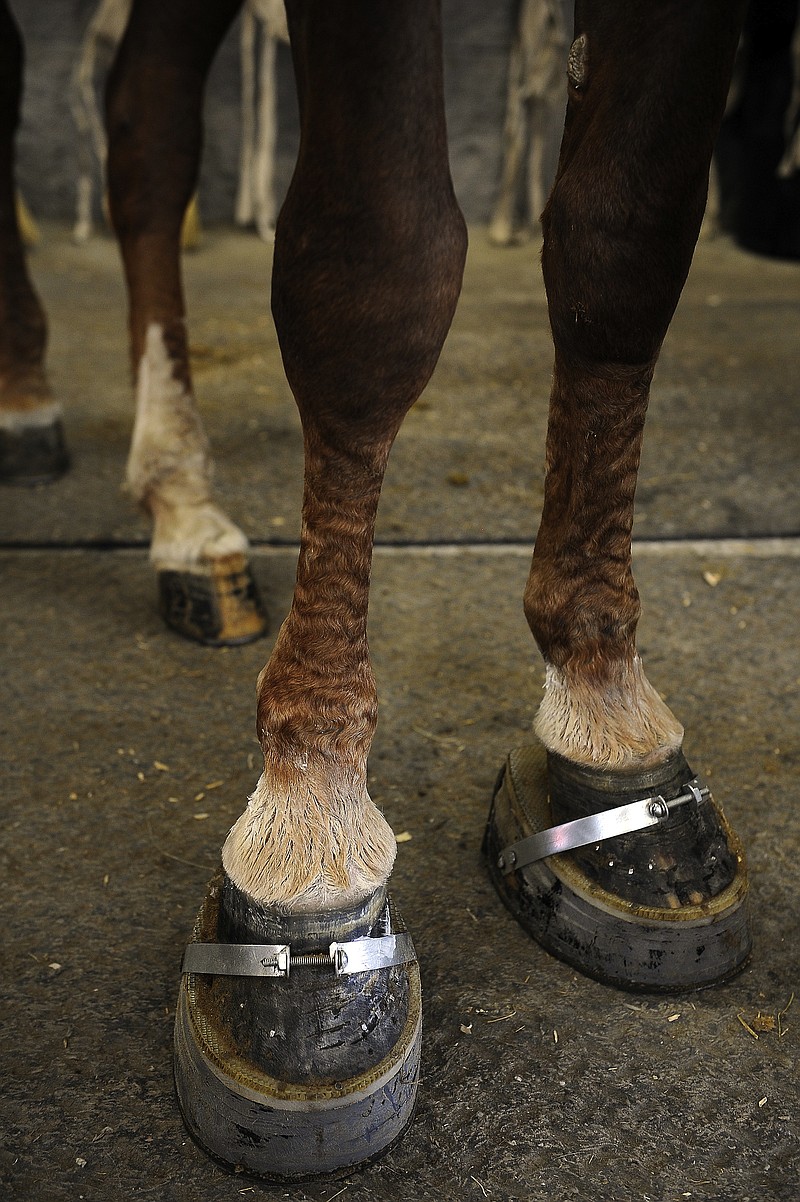Tell USDA what you think
The proposed rule was published in the Federal Register July 26, 2016, and is available for public comment at http://www.regulations.gov/#!docketDetail;D=APHIS-2011-0009. It can be viewed online at https://www.federalregister.gov/public-inspection. Consideration will be given to comments received on or before September 26.
In less than two weeks, the annual 11-day Tennessee Walking Horse National Celebration is scheduled to begin in Shelbyville.
The walking horse show in recent decades has become the poster child of cruelty to animals with the onset of outrageously stacked and weighted shoeing techniques, sometimes combined with caustic chemicals. This year's competition will be held Aug. 24 through Sept. 3.
It hasn't always been like this. Nor does it have to stay this way.
The majestic and graceful Tennessee walking horse has been around since plantation times in the late 18th century, when farmers used smooth-gaited horses to cover lots of land quickly and comfortably. The horses had a distinct gait that was fast like a trot, but not at all jarring. Their step became known as a running-walk, and those utility horses were flat-shod, patiently trained and carried an outstanding reputation for calmness.
The first Tennessee Walking Horse National Celebration was in 1939, but caustic chemicals and weighted or stacked hoof devices didn't become the short-cut training methods - called soring - until the 1950s or 1960s.
Now the resultant torturous, lurching "big-lick" is big business - especially in Tennessee and Kentucky.
Industry voices had long said that abuse was limited to just a few "bad apples" trying to make it to the big time, but in 2012, the country was shocked by video on prime-time news showing a big-timer - one-time Walking Horse Trainer of the Year Jackie McConnell - and his stablehands abusing horses in the name of "training them" to step ever higher and higher.
Many in the industry knew McConnell's barn had been raided by federal agents during the 2011 Shelbyville event. What they didn't know until the video debuted was that the Humane Society of the United States had hidden-camera video of the abuse. In 2013, McConnell and several of his associates pleaded guilty here in Chattanooga to federal charges. In an apology video that McConnell made as a condition of his probation, he said soring abuse is widespread in the industry.
The publicity of the McConnell case prompted activists, including Tennessee's Priscilla Presley, to lobby Congress to pass a law ending soring for good by banning all soring devices, including stacked shoes, pads, chains and foreign substances at horse shows, exhibitions, sales and auctions.
But the horse industry and its supporters are strong and moneyed. Their lobbying stalled the legislation in committees.
None of Tennessee's Republican leadership would support the bill, and some - including Sen. Lamar Alexander - sponsored a watered-down industry-led bill that masqueraded as reform but in reality maintains the status-quo.
Last month, the Obama administration's U.S. Department of Agriculture proposed rule changes to its enforcement of the Horse Protection Act that would effectively eliminate soring by banning the soring devices. In addition, a branch of the USDA would assume responsibility for training, screening and licensing veterinarians and veterinarian educators as horse inspectors. Those inspectors would replace industry-approved lay inspectors.
This week, a hearing on the proposal drew hundreds to Murfreesboro, Tenn., and it's clear that the proposal faces a long and uphill fight. Predictably, horse trainers complained the proposed regulation would destroy their industry and put them out of business.
That's hardly true. The industry will suffer more (and has) thanks to the face it gives itself with this horrible abuse - a fact made clear by continually falling show attendance.
Horse lovers will always love and pay highly for true Tennessee walking horses - the ones that walk naturally and smoothly, thanks to traditional flat-shod and patient training methods. This breed was showy long before chemicals and over-sized hooves degraded its graceful walk.
Trainers would do themselves and these horses a favor by returning the breed to its graceful roots.
